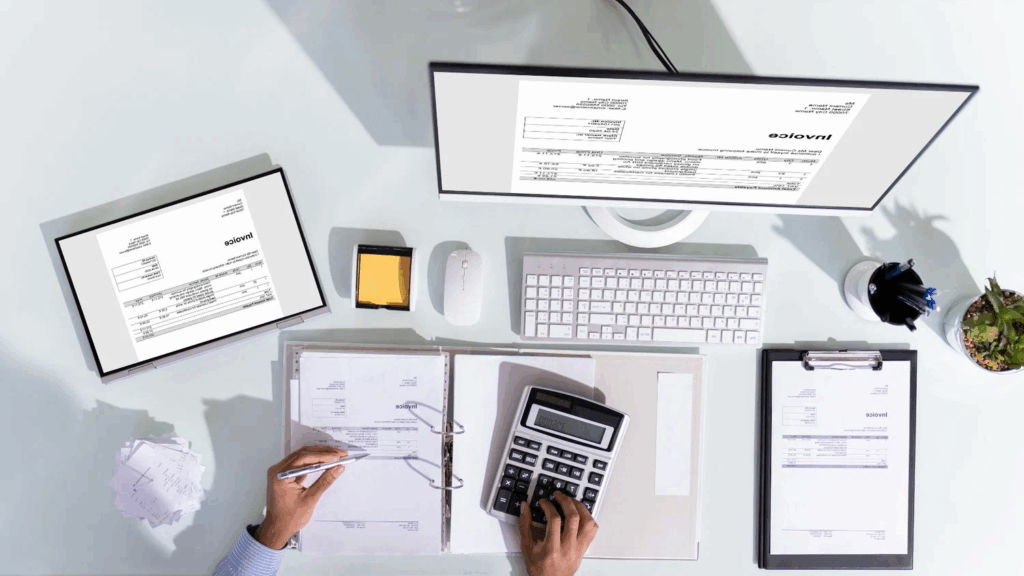If you’re building or scaling a company in the UAE, you may wonder: why does your business need a UAE bank account? It’s not just a box to tick. A local corporate account offers real strategic value — from regulatory compliance and credibility to cash-flow control and faster growth.
What a UAE Corporate Bank Account Actually Means
A UAE corporate bank account is an onshore business account tied to your legal entity — whether that’s a mainland LLC, a free‑zone company, or a branch. Unlike offshore or purely personal accounts, corporate accounts let you operate in multiple currencies, process payroll, pay vendors, and access trade‑finance tools. Banks like Emirates NBD, Mashreq, and FAB support these features with robust online platforms.
Top Reasons Your Business Needs a UAE Bank Account (2025 Edition)

1. Simplified Compliance & Corporate Tax Readiness
With the UAE’s corporate tax regime now in force, having a proper local bank account makes your financial records more auditable. Businesses with a corporate account can track income, separate funds clearly, and respond more easily to tax reporting. This is especially relevant now that UAE corporate tax applies to profits above AED 375,000, as set out in the country’s tax laws.
2. Boosted Credibility for Investors and Partners
A corporate account in a well-known UAE bank signals seriousness. It builds trust with investors, suppliers, and clients. According to banking‑setup experts, the right local banking partner can be a solid signal that your operations are legitimate and well‑structured.
3. Easier International Transactions
Many UAE corporate accounts support multi-currency operations (AED, USD, EUR, etc.) and connect to global payment networks like SWIFT — which makes dealing with international clients or suppliers smoother and more cost-efficient.
4. Secure, Regulated Banking Infrastructure
Thanks to strict KYC and AML rules enforced by the UAE Central Bank, corporate accounts are safer and more trustworthy. This regulatory rigor protects your business and gives stakeholders confidence that funds are handled properly.
5. Access to Credit, Financing & Trade Services
When you maintain a corporate account in the UAE, you build a local financial history. That opens doors to trade finance, letters of credit, working capital loans, and other credit facilities — all crucial for scaling your business.
6. Operational Efficiency & Cash‑Flow Control
A single local account means you can centralize: vendor payments, payroll, receivables, and more. And with online banking from the likes of Mashreq or Emirates NBD, you get real-time visibility into your cash flow, helping you make smarter financial decisions.
7. Faster Account Opening via the Unified Licence
One of the most important developments in 2025: Dubai’s Unified Licence (DUL) system, which has cut typical business account‑opening times from around 65 days to just 5 business days. The DUL acts as a verified digital identity for businesses, allowing banks to access pre‑verified business details and streamline onboarding.
Realistic Challenges to Be Aware Of

- Paperwork & KYC: Banks require trade licenses, shareholder passports, proof of address (Ejari lease or tenancy), beneficial‑ownership details, and often a business plan. This is standard, per ProAct’s 2025 guide.
- Minimum Balance Requirements: According to multiple sources, some banks require minimum balances from AED 50,000 up to AED 500,000, depending on account type.
- Non‑Resident Owners: If shareholders are non‑residents, expect extra scrutiny — source-of-funds documentation and potentially interviews may be required.
- Bank Choice Matters: Not all banks are equally friendly to every type of business or free-zone, so selecting banks that understand your business structure is vital.
How to Open a UAE Corporate Bank Account in 2025 — Step by Step
- Pick the Right Bank
Consider banks like Emirates NBD, FAB, Mashreq, or others, based on your needs (multi-currency, trade finance, credit). - Prepare Complete Documentation
You’ll typically need:
- A valid trade license and certificate of incorporation
- Memorandum & Articles of Association
- Shareholders’ passports, Emirates IDs (if UAE‑based)
- Proof of address (Ejari or tenancy agreement)
- A business plan or projected financials (if required)
These are standard requirements per Creative Zone’s 2025 business‑setup guide.
- A valid trade license and certificate of incorporation
- Apply Using the Unified Licence (If in Dubai)
If your business is eligible, use the DUL system to submit your application digitally, so banks can verify your company’s credentials faster. This significantly reduces delays. - Go Through KYC / Due Diligence
Be ready for detailed checks: source-of-funds statements, beneficial‑owner identification, and possibly a meeting or call with the bank’s compliance team. - Deposit & Maintain Minimum Balance
Make the required initial deposit and maintain the minimum balance to avoid fees. According to PRO Services, non-compliance could lead to monthly maintenance charges. - Activate & Use the Account
Once approved, set up online banking, enable multi-currency features, and integrate with your accounting tools so you can manage payments, payroll, and cash flow effectively.
How HA Group Helps You Navigate This Process
At HA Group, we’ve supported more than 1,500 businesses in establishing UAE corporate bank accounts. Over the last 5+ years, we’ve helped with 3,500+ business setups and 5,000+ visas, giving us deep experience in compliance, banking relationships, and documentation.
Here’s how we make your life easier:
- We audit your company’s documents for banking readiness, minimizing rejections.
- We advise on the right banks based on your structure, risk profile, and banking goals.
- We support you through KYC, due diligence, and digital‑identity verification (like using UAE Pass).
- We help you activate the account quickly, so you can start using it for operations, payroll, and growth — without unnecessary delays.
Frequently Asked Questions
Q: Can non-resident shareholders open a UAE corporate bank account?
Yes, but non-resident shareholders often face stricter verification. Banks typically request documents about business activity, source of funds, and may interview signatories, per AMA’s banking‑setup guides.
Q: How fast can a corporate account open in 2025?
Thanks to Dubai’s Unified Licence, many business bank accounts can now open in about 5 business days, per Gulf News. Without DUL, timelines vary by bank and risk profile.
Q: What is the usual minimum balance for UAE corporate accounts?
That depends on the bank: sources report minimums ranging from AED 50,000 to AED 500,000, depending on type and bank policy.
Q: Do I need a physical UAE office to open the account?
Most banks do ask for proof of a registered office — like an Ejari or tenancy agreement — as part of their compliance process.
Final Thoughts
A UAE corporate bank account isn’t just regulatory red tape — it’s a critical lever for your business’s credibility, financial health, and international operations. In 2025, with faster account‑opening via the Unified Licence and well‑regulated banking infrastructure, it’s more efficient and strategic than ever.
If you want someone to handle the banking legwork while you focus on building your business, HA Group has you covered. We’ll guide you through every step — documentation, bank selection, onboarding — so you’re ready to operate and grow with confidence.
Ready to get your UAE corporate bank account set up — without the stress or delays? Reach out to HA Group today.
Recommended Artilces:
How to Choose the Right Bank for Your Business in Dubai
Why Do Some UAE Bank Accounts Get Rejected?
Bank Account Opening Rejected in Dubai – What to Do?







